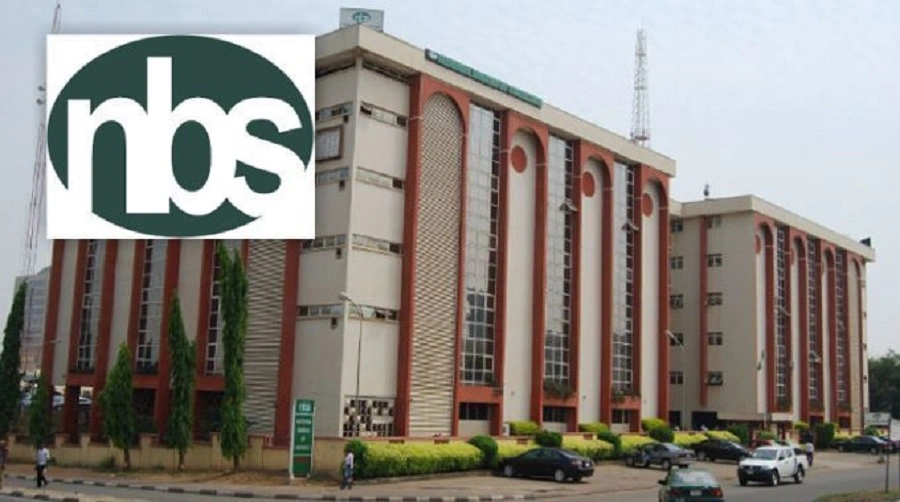Information and Communication Technology (ICT) and agriculture are among the key sectors that boosted the Gross Domestic Product (GDP) of Nigeria by 2.25 per cent in the third quarter of 2022.
According to a report by the National Bureau of Statistics (NBS) released on Thursday, oil revenue dropped to 4.2% as production also dropped averagely to 1.2 million barrels per day.
This means the economy is steadily relying on the non-oil sector, which contributed 94.34%.
Recall that the Minister of State for Budget and National Planning, Clem Agba, had said the Nigerian economy now runs on revenue from the non-oil sector as oil no longer contributes to the government’s coffers.
- Buhari doesn’t ‘use and dump’ his loyalists – Gambari
- Nigerian legislature impotent, says Buhari’s ex-Minister
But the oil production drop indicated that despite the discovery of illegal pipelines and the signing of a security contract with a former militant leader, Government Oweizide Ekpemupolo, alias Tompolo, the country is yet to meet its OPEC quota.
Meanwhile, NBS has said the GDP was a drop from 4.03% in the third quarter of 2021.
It blamed the slow growth on the recession and the challenging economic conditions that have hindered productive activities.
“The Q3 2022 growth rate decreased by 1.78 per cent points from the 4.03% growth rate recorded in Q3 2021 and decreased by 1.29% points relative to 3.54% in Q2 2022,” it said.
It however said the real GDP grew at 9.68 per cent when compared to the second quarter of 2022, “Reflecting a higher economic activity in Q3 2022 than the preceding quarter.
“In the quarter under review, aggregate GDP stood at N52, 255,809.62 in nominal terms. This performance is higher when compared to the third quarter of 2021 which recorded aggregate GDP of N45, 113,448.06, indicating a year-on-year nominal growth rate of 15.83 per cent.”
It added that agriculture contributed 29.67 per cent in real terms with crop production the major driver of the sector, while industries contributed 18.37 per cent and services 51.96 per cent.
Oil production drops to 1.2m
It stated that oil production dropped to an average daily production of 1.20 million barrels per day (mbpd), which is lower than the daily average production of 1.57mbpd recorded in the same quarter of 2021 and lower than the second quarter of 2022 production volume of 1.43 mbpd.
On the other hand, the non-oil sector grew by 4.27% in real terms.
But the figure is lower by 1.18 points when compared to the rate recorded in the same quarter of 2021 and 0.50% points lower than the second quarter of 2022.
“This sector was driven in the third quarter of 2022 mainly by Information and Communication (Telecommunication); trade; transportation (road transport); financial and insurance (financial institutions); agriculture (crop production) and real estate, accounting for positive GDP growth.”
In real terms, the non-oil sector contributed 94.34% to the nation’s GDP in the third quarter of 2022, higher than the share recorded in the third quarter of 2021, which was 92.51% and higher than the second quarter of 2022 recorded as 93.67%.
Commenting on Wednesday about the performance of the ICT sector, the Minister of Communications and Digital Economy, Prof. Isa Ali Pantami, said ICT was contributing much to the economy and also creating jobs.
“President Buhari is placing emphasis on the ICT sector as the best way to diversify the economy and ensure that our reliance on the oil and gas sector reduces significantly. This development has been yielding positive results because the latest statistics showed that the ICT sector contributed about 18 per cent to Gross Domestic Product (GDP), while the oil and gas sector contributed about seven per cent,” he said.
Pantami, who said President Muhammadu Buhari would soon inaugurate the N12.1 billion Digital Innovation and Entrepreneurship Centre (DIEC) being constructed by the National Information Technology Development Agency (NITDA) in Abuja, added that the project was a legacy project expected to create direct and indirect jobs for scores of young Innovators and entrepreneurs in the ICT sector.
A finance expert and Chairman of the Chartered Institute of Bankers of Nigeria (CIBN) Abuja branch, Prof. Uche Uwaleke, said: “Another remarkable development is that there was an improvement in the agric sector relative to the previous quarter in spite of the flooding and insecurity in many parts of the country which goes to show that agriculture remains one of the resilient sectors of our economy.
“It’s equally pertinent to note that, within the non-oil sector, the positive real GDP growth rate recorded in the third quarter was powered mainly from the services sector, especially financial services, ICT and transportation as opposed to industry and agriculture where most of the jobs are,” he said.
He said the challenge of oil theft and pipeline vandalism must be tackled against the backdrop of favourable crude oil prices. He further advised the CBN to halt further hikes in the Monetary Policy Rate while using its Open Market Operations and non-traditional measures including the effective implementation of the currency redesign and eNaira, to control money supply.
By Faruk Shuaibu, Philip S. Clement & Zakariyya Adaramola

 Join Daily Trust WhatsApp Community For Quick Access To News and Happenings Around You.
Join Daily Trust WhatsApp Community For Quick Access To News and Happenings Around You.

